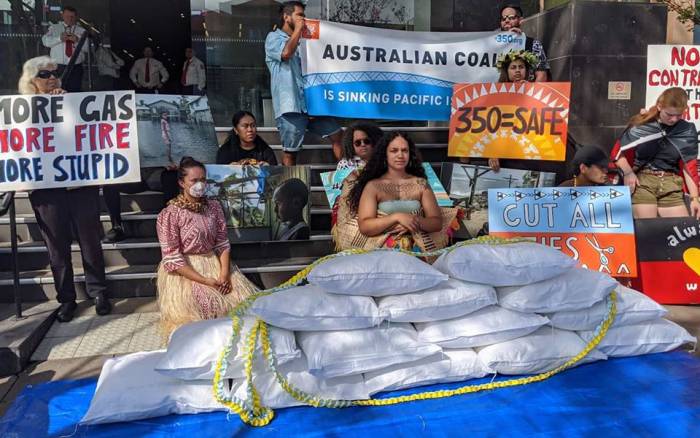Brisbane, Australia – This week, Rio Tinto, one of the top 25 industrial greenhouse gas (GHG) producers in the world, accounting for 0.75 percent of global GHG emissions between 1988 and 2015, is holding its Annual General Meeting (AGM) and climate is a hot agenda item.

Rio Tinto advocates to “work hard to leave a lasting, positive legacy everywhere we work,” however, the allegations of bribery, corruption, human rights abuses and devastating, irreparable environmental damage in places like Panguna, Papua New Guinea, indicate that Rio Tinto needs to do more than just invest in good public relations.
The largest single member of the Minerals Council of Australia (MCA), Rio Tinto pays over $2.1million a year in membership fees. Their polished claims for sustainability through their work are bogus in light of their continued relationship with the MCA.
Last year, in a notice ahead of its Annual General Meeting in May, Rio Tinto said shareholders should vote against the proposed rule change that would have it set transition plans that adhere to the goals of the Paris Agreement to limit global warming to 1.5 degrees Celsius.
Their stance has not changed much with Rio Tinto’s expectations for the MCA to ensure that their policy on climate change and energy advocacy was consistent with the miner’s own, as well as the Paris Agreement which aims to limit global warming to “well below” 2 degrees Celsius. Although Rio Tinto initially said it would reconsider its support for the MCA and noted several advocacy “misalignments,” they also said that the breaches were “minor” and it would maintain its membership.
Fenton Lutunatabua, 350 Pacific Regional Director said:
“Pacific Islanders are calling for Rio Tinto to cut all ties with the MCA if it really is concerned about the issue of climate change and engaging in meaningful partnerships with civil society organisations and consumers.
Large corporations like Rio Tinto are the perpetrators of the devastation that continues to rob Pacific Island people of their basic human rights and undermine their cultural integrity by supporting the fossil fuel industry.
In the last ten years, the Pacific Islands have experienced 77 intense tropical cyclones, which claimed a total of 141 lives, of which 12 tropical cyclones occurred during the off-season. Compared to other countries, these numbers may not seem like a lot, but when you consider that the total population of inhabitants in the South Pacific is a mere 2.5million – those numbers hit hard.
Although the impacts of the fossil-fuelled crisis have been obvious in the Pacific, the reality is now more evident across Australia as bushfires ravage homes, wildlife, and livelihoods. More than 10 million hectares burnt across Australia and 3,000 homes and 7,000 buildings were destroyed during the 2019/20 bushfire season.”
This AGM is critical for Rio Tinto, especially in light of recent sentiments shared by chairman Simon Thompson, where he stated that the pandemic is no excuse for stalling on climate action. The Pacific is calling for Rio Tinto to turn advocacy into action and model climate leadership by ending its relationship with the Minerals Council of Australia.
###